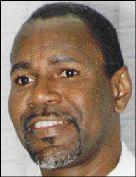By Cedric Wilson, Contributor
Cedric Wilson
AS THE level of violent crime soars and conventional methods of keeping it in check fail, the question that is increasingly being asked is, whether there is a link between the level of crime and the general situation in the economy.
From the perspective of the economist, in committing an act of crime, man is a rational being. Consequently, the decision to commit a crime is no different from making any other economic decision.
As such a man who decides to rob people at gunpoint is no less rational than a man who elects to be an accountant. A woman who decides to carry illegal drugs overseas has no less command over her mental faculty than the businesswoman who chooses to buy her supplies in bulk in order to minimise cost.
ALTERNATIVES
In all these instances, the individual involved evaluates the alternatives available and selects the one that will lead to the greatest economic gain. In this context, it is easy to understand why the probability of a petite lady being relieved of her purse by a thief is greater than that of a man with the build of a heavyweight boxer of his wallet. Therefore the argument of the economist is completely logical to stop crime it is not necessary to make criminal acts impossible, but rather to make them unprofitable.
By simply observing the numbers of idle youths on urban street corners and without appealing to any fancy economic theory, many Jamaicans are of the view that there is an association between unemployment and crime in the society. After all, there must be some truth in the adage "the devil finds work for idle hands".
RATE OF UNEMPLOYMENT
Indeed, over the last decade the rate of unemployment has averaged 15.5 per cent and except for the last three years when the economy has shown signs of incipient growth, the country has been in a state of economic stagnation.
Professor Al Francis and Kaycea Campbell of the University of the West Indies, Mona, have taken this notion beyond intuition and conjecture, and have employed a number of statistical models to assess the extent to which the idea of economic rationality is valid.
Francis and Campbell examined simultaneously, a number, factors that could possibly impact on violent crime, these include GDP, youth unemployment, the size of the police force, the clear-up rate, length of prison sentences and income distribution. While the findings of the study are interesting for the purpose of this article, our discussion will be restricted to the results from unemployment.
Francis and Campbell found that youth unemployment in Jamaica is a motivational factor for all other types of violent crime except robbery.
Therefore unemployment leads to crime against the person (such as murder, shootings, rape and carnal abuse) rather than crimes against his property.
In fact, the incidence of robbery reported has declined from 4,424 in 1995 to 1,710 in 2003. On the surface this result may appear bewildering, since it is normal to expect than an individual who is without an income would try to find a way to eat bread, of which robbery naturally comes to mind. However, in talking with Professor Francis he will quickly point out that unemployed youths at home or in the community provide security against break-ins and the presence of suspicious strangers in an area.
A potential thief, being a rational creature, will evaluate the costs of being caught and beaten by a mob against the likely benefits of his actions. One may therefore deduce from this that unemployment is more likely to increase the incidence of begging than the rate of robbery.
MOTIVATIONAL FACTOR
More significantly, Francis and Campbell discovered that despite the fact that unemployment is a motivational factor for most violent crimes, the link between the two is weak.
In other words, if thousands of new jobs were created and the rate of unemployment was reduced from the current level of 13 per cent to three per cent the impact on most major crimes though favourable, would be negligible.
The implication of this is that crime might be better explained by other socio-economic factors, such as income distribution, economic output, education and the timing of political elections.
If the findings of Francis and Campbell are to be taken seriously in the shaping of policies directed at crime then it is evident that while the creation of jobs particularly for youths is desirable and should be zealously pursued, the level of crime reduction that decent Jamaicans want to see will not come through this measure. A harsh reality but this is the story the numbers tell us.
You may send your comments to conoswil@hotmail.com













